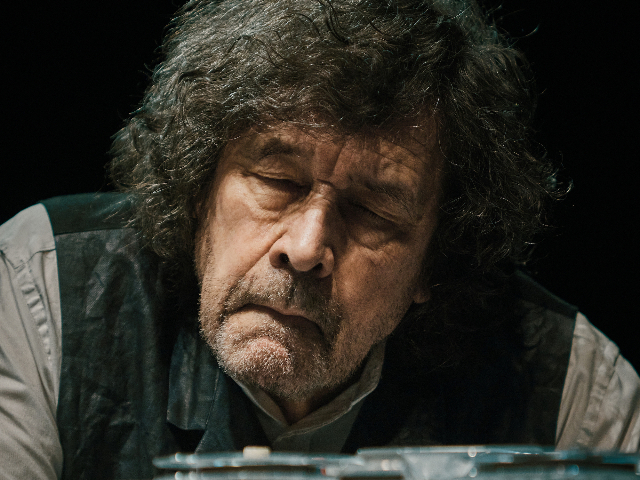It’s a legendary role created by an acclaimed playwright that many seasoned actors hope to grow into. But as the lights rise on Stephen Rea sitting motionless at his desk, it soon becomes clear that Krapp is more Fool than King Lear.
Samuel Beckett left plenty of metaphorical banana peels for his audience. Here they are literal, the Dunstan Playhouse filled with nervous giggles as Rea shuffles awkwardly around the bare stage and mocks a pratfall in an extended opening.
Eventually we get to the meat of the performance, in which this broken-down 69-year-old listens to a tape made on his birthday three decades earlier. He laughs dismissively as his bloviating younger self declaims a “farewell to love”, the language so overwrought that at one point he shuffles offstage to fetch a dictionary. But for much of the 55-minute performance we simply watch Rea in the act of listening.
The version we see is largely bereft of the vigour and self-assuredness evident in the disembodied voice, and the fact that we are listening to a recording of a younger Rea is a nice conceit. But while his filmography uses close-ups to show off subtle changes in facial expression, here he feels compelled to over-emote. Each cringe and scoff is delivered with a flourish to ensure nobody can miss it and much like the character who fast-forwards through sections of tape that threaten to reveal too much, the result teases without ever quite delivering.
Krapp’s Last Tape, Dunstan Playhouse, until 8 March
